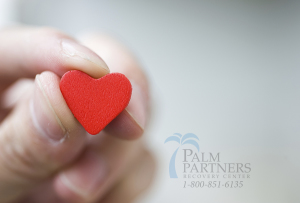By Cheryl Steinberg
Dr. Jack Kornfield, renowned Buddhist teacher, sees the importance of compassion, forgiveness and mindfulness in liberating you from addiction.
A little background: Psychologist Jack Kornfield, PhD., has worked for more than 40 years in his mission to make Buddhism more accessible for Westerners by way of his teachings of mindfulness and meditation.
It is his belief that the Buddhist teachings of compassion and mindfulness can have great impact on addiction, and therefore, recovery:
“Addiction is a common part of human incarnation. It starts because we’re built with desire. It is always a part of us. Poet Alison Luterman says, ‘It’s like when you hide the chocolate chip cookies because you’re on a diet, and you’re the only person in the entire galaxy who knows where the chocolate chip cookies are hidden.’ From childhood on, we struggle to find ways to satisfy ourselves and to regulate ourselves because of pain, loneliness, or simply to avoid what’s unpleasant. Trying to manage life, especially when it’s hard, we can then get caught in a cycle of grasping and addiction,” says Kornfield. “In Buddhist psychology, this is called living in the Realm of the Hungry Ghosts. A Hungry Ghost is a being who has a tiny mouth and giant belly and no matter how much it eats, it can never feel satisfied or whole. When it is strong, what do we do with our hunger? The point is not to get rid of desires, but to find a healthy relationship to them. As William Blake said, ‘Those who want to be free must not rid themselves of desires, but develop an understanding of them.’”
In an interview he gave with The Fix, Dr. Kornfield answers the question: Is compassion the key to recovery? Here is an abridged version of the interview.
The Fix: Have you worked with people struggling with substance and behavioral addictions?
Dr. Kornfield: Over the years, many people struggling with addiction have come to learn Buddhist mindfulness and compassion. Self-compassion can help see what is really at the body, heart and mind’s best interest, and how the tools of mindfulness can let you step back and experience things that you couldn’t withstand because of the discomfort and difficulty it brings.
Are you saying mindfulness is about taking a step back?
Yes, it develops a perspective of loving awareness that can witness experience without being completely caught in it. Modern neuroscience research has shown that steadiness of attention, emotional regulation, and self-compassion all deepen through systematic practice. So there are ways to train yourself to respond differently.
What would you like addicts to know about your teachings?
Buddhist tradition begins by acknowledging the dignity and nobility of every being. With addiction there’s so much shame, guilt, self-loathing and self-criticism. Buddhist trainings begin with loving awareness and the capacity to step back and witness your experience without being taken over by it. Participating in trainings for compassion and mindfulness requires courage and patience and self-compassion. Step by step, you begin to remember the wholeness and well-being that is your birthright.
Do you think spirituality is a necessity in the recovery process?
I would say it’s important for most people because our soul and spirit needs to be connected to something greater than our small sense of self, our limited identity. Whether that spirituality is religious or for some simply feeling the sacredness of life there is a need to treasure yourself and others. The Dalai Lama says, “My religion is kindness.” In whatever form it takes, spirituality moves us from a materialistic or depressed or self-critical perspective to a sense that life itself is sacred.
What kind of role can forgiveness meditation play in recovery and healing?
It’s critical. On my website is a beautiful forgiveness meditation that comes from my book The Art of Forgivingness and Lovingkindness and Peace. Forgiving others and ourselves releases the heart so we do not continue to carry hatred. Forgiveness doesn’t mean that you condone what has happened. In fact, you must protect yourself and say “I’ll do all I can to make sure this doesn’t happen to anyone again.” Forgiveness simply means not carrying hatred in your heart, but being willing to start anew. The most important forgiveness in addiction is self-forgiveness, a deep process of learning to hold yourself and your own self-betrayal and the suffering you caused to yourself and others with mercy and tenderness so that you can begin again.
If you or someone you love is struggling with substance abuse or addiction, help is available and recovery is possible. Please call an Addiction Specialist today at toll-free 1-800-951-6135. We are available around the clock to answer your questions.
